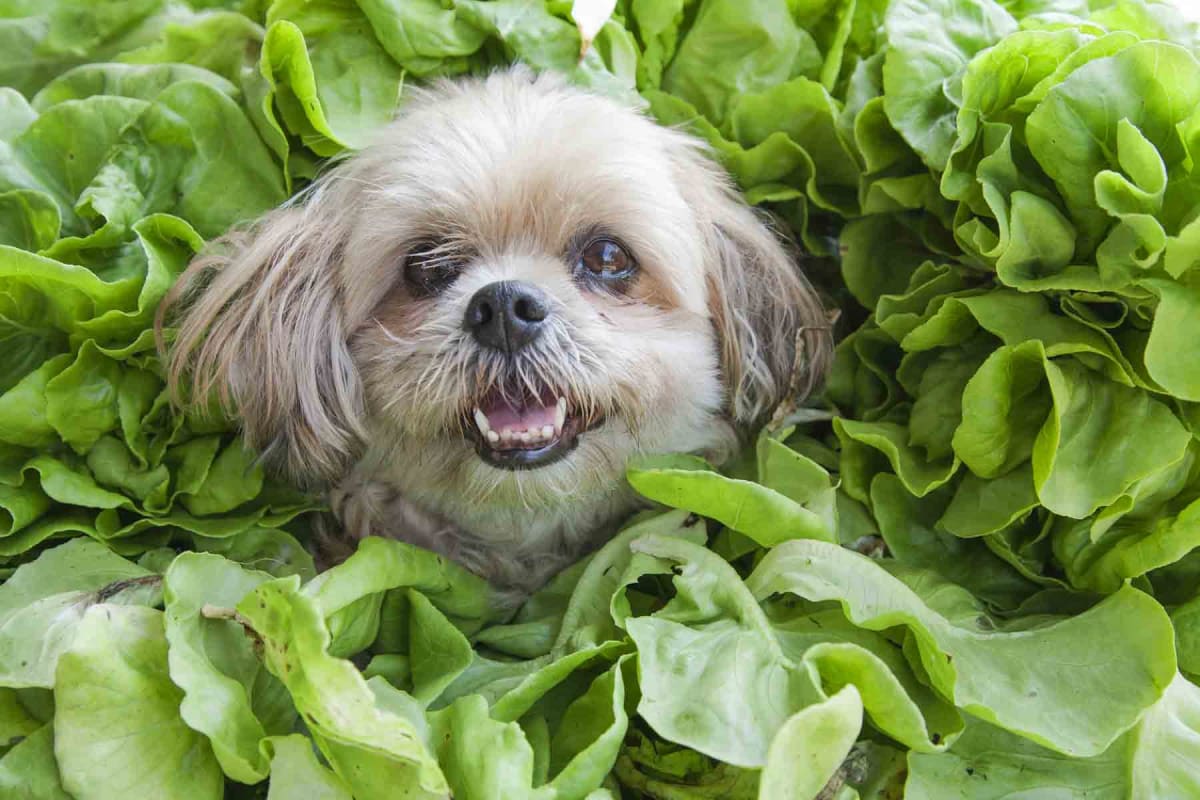
Can dogs eat spinach?
Can dogs eat spinach?
Can dogs have spinach?
Yes, dogs can eat spinach occasionally and in small amounts. This leafy green vegetable is non-toxic to dogs and can be a healthy addition to their diet when prepared properly. However, there are important considerations to keep in mind to ensure it's a safe and healthy treat for your furry friend.
Is spinach good for dogs?
Spinach offers several health benefits for dogs when fed in appropriate amounts:
Rich in vitamins and minerals: Spinach provides vitamins A, C, K, iron, magnesium, and folate, supporting immune function, bone health, and energy levels.
Antioxidants: The leafy green is loaded with antioxidants like lutein, which help combat free radicals and support cellular health.
Dietary fiber: Spinach contains fiber, which can aid digestion and promote healthy bowel movements.
While these benefits are appealing, spinach should never replace a balanced dog food diet. It’s best used as an occasional supplement or treat.
When is spinach bad for dogs?
Despite its benefits, spinach isn't right for every dog. The primary concern with spinach is its high oxalate content. Oxalates can bind to calcium and might contribute to kidney stone formation in dogs predisposed to kidney issues. Dogs with the following conditions should avoid spinach:
History of kidney stones or calcium oxalate stones
Kidney disease
Urinary tract problems
Additionally, spinach contains small amounts of sodium and should be limited for dogs on low-sodium diets. The high fiber content, while beneficial, can cause digestive upset in dogs not accustomed to it. If your dog has existing health conditions, consult your veterinarian before introducing spinach.
How to safely prepare spinach for your dog
If you've decided to share spinach with your healthy dog, preparation is key. Follow these guidelines for safe preparation:
Wash thoroughly: Rinse spinach well to remove pesticides and dirt.
Steam or blanch: Lightly steam or blanch spinach to make it easier to digest and to reduce oxalate content. Avoid boiling, which can destroy some of the nutrients.
Chop finely: Chop or purée the leaves to prevent choking and aid digestion.
No additives: Serve it plain—never add salt, oil, butter, garlic, onions, or spices.
Serve fresh or steamed: Avoid canned spinach due to high sodium and preservatives.
Can dogs eat raw spinach?
While dogs can technically eat raw spinach, cooked spinach is a better option. Raw spinach contains more oxalates than cooked spinach, as the cooking process helps break down some of these compounds. Raw spinach is also harder for dogs to digest and may cause more gastrointestinal upset.
If you do offer raw spinach, make sure it's thoroughly washed, finely chopped, and given in very small amounts to minimize digestive issues. However, lightly steaming or blanching is still the preferred preparation method for canine consumption.
How much spinach can I feed my dog?
Moderation is crucial when feeding spinach to dogs. Even for healthy dogs, spinach should be an occasional treat rather than a daily food. The appropriate serving size depends on the size of your dog:
Small dogs (under 20 lbs.): ¼ teaspoon
Medium dogs (20 to 50 lbs.): Up to 2 teaspoons
Large dogs (over 50 lbs.): Up to 3 tablespoons
Start with even smaller quantities when first introducing spinach to monitor how your dog reacts. Watch for any signs of digestive upset like vomiting, diarrhea, or excessive gas.
Remember that treats, including vegetables like spinach, should make up no more than 10% of your dog's total caloric intake. The other 90% should come from complete and balanced dog food.
Other safe and healthy treat options
If you're concerned about spinach or looking for variety, there are many other vegetables that are safe for dogs that can provide similar benefits without the oxalate concerns of spinach, including:
Carrots
Green beans
Pumpkin (plain, not pie filling)
Broccoli (in small amounts)
Sweet potatoes (cooked)
Always consult with your veterinarian before making significant changes to your dog's diet. While treats like spinach and other dog-friendly veggies can complement a healthy diet, they should never replace balanced dog food formulated to meet all your canine companion's nutritional needs.